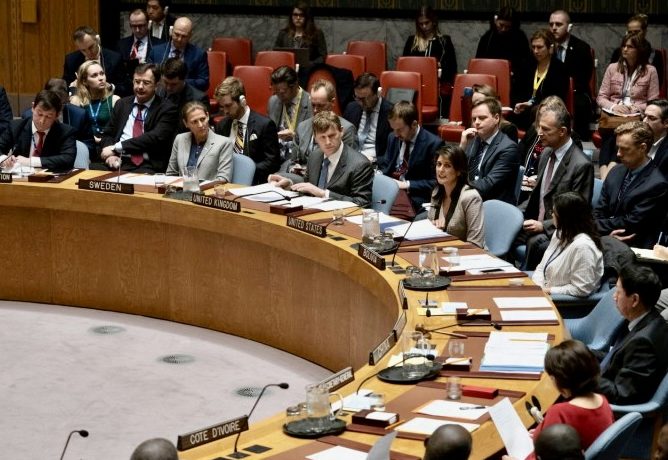By Khairunnikman Khairul Anwar
As the country saw the just concluded Melaka and Sarawak state election and in few weeks’ time will then hold another legislative election in Johor, it is apparent that the right to vote and participate in this electoral process shows democracy at its best. Democracy, at present, is at or near a modern-day high globally. The Democracy Index provided by The Economist Intelligence Unit shows that in 2020, 23 countries were categorized as full democracies and another 52 as flawed democracies (free and fair elections but still have minor issues and critics). The rest countries are categorized as hybrid regimes and authoritarian regimes with 35 and 57 respectively.
Therefore, in this series, it would be great if we can talk about one of the theories in International Relations – Democratic Peace Theories from the view of international relations. Democratic peace theory is an idea that by nature democratic states almost never fight with each other.
As we talk about democratic peace theory, it is almost impossible to leave out the name of 18th-century German philosopher Immanuel Kant. He wrote the book Perpetual Peace which was published in 1795, and his work eventually led him to be widely regarded as an intellectual precursor to modern democratic peace theory. His theory was based around the theory that countries sharing a common a constitutional republic as political regime would be very cautious about going to war. This is because declaring war requires the consent of the people and that they would be reluctant to support war and being exposed to the calamities of the war itself make them avoid engaging conflicts with other nations.
Thus, in general, we can define democratic peace theory as a theory that claims peace is a reasonable outcome of the interaction of states with a democratic form of government. Because the costs and risks of war directly affect large segments of the population, it is expected that the average voter will throw the incumbent leader/party out of office if they initiate a losing or unnecessary war, thus, providing a clear institutional incentive for democratic leaders to anticipate such an electoral response before deciding to go to war.
Strength
The first edge of democratic peace theory is of course that lesser states engage in war. This is due to the higher capacity of public opinion to put pressure on the government of a political regime. As mentioned by Kant, only in a political regime in which popular consensus is needed by the government in order to win elections and remain in power, are where the political leaders sensitive to the demands of public opinion. While for the public, they are always against the idea the idea of war because they do not want to suffer its costs, both in terms of economy and casualties.
The second advantage was based on political scientist’s Professor Bruce Russet’s argument who stated that “Democratic leaders are conscientious that other democracies require time to decide, and that they cannot surprise attack”. In this case, democracies would not be able to organize surprise attacks against their adversaries as there are several legal restrictions along with public debate which slow the march to war, giving the societies and government involved time to find peaceful solutions to disagreements. Hence, this reduces the fear felt by both sides when two democracies find themselves in conflict.
Criticism
A great deal of criticism of the democratic peace theory is focused on the internal versus external ideology argument. According to American political scientist Kenneth Waltz, domestic factors or ideology do not have an impact on the international behavior of a state, but international systems are. States might share the same type of regime, but this does not mean that they share the same interests or the methods of securing them. As academician Christopher Layne argues, “in realist world, survival and security are always at risk, and democratic states will respond no differently to democratic rivals than to non-democratic ones”. Moreover, the allocation of material power remains the predominant factor that influences war and peace, rather than domestic political institutions as supporters of the democratic peace propose. Thus, just like any other ideologies or theories, what is really behind states action in international system, whether they practice democracy or not, are figured by the material resources and situation of the states, including some combination of the desires for survival, power, wealth, and security.
Besides that, in a study by two academicians Professor Edward D. Mansfield and Professor Jack Snyder led to a criticism that the process of democratization tends to be more warlike. Democratization refers to the process where states have undergone a regime change in a democratic direction. According to them, the risk of war is greater during that transitional era. There are several factors that could probably affect the probability of war during this period. First, democratization leads to the establishment of several politically important groups with different and sometimes conflicting platforms. Secondly, the threatened elites have the urge to form allies among the mass population, sometimes along nationalist lines. Last but not least, state authority in general is weak and unstable. Having listed the reasons, it is understandably that the danger of war escalates when elites attempt to maintain or increase the support of the people by utilizing nationalist or populist agenda during the democratization process and trigger mass nationalism. In addition, this transition period can also cause the civil war, which often breaks out for many of the reasons listed above. Thus, interventionism in implementing democracy would lead to inevitably the eruption of more conflicts, and not peace.
In Part II of this article, the author will elaborate by using a few case studies to further explain Democratic Peace Theory in the shape of international arena’s state of affairs. It will somehow contribute to the debate surrounding the Democratic Peace hypothesis of whether democratization might be the answer to safer world.
The writer is the analyst at Arthos Sdn. Bhd.






